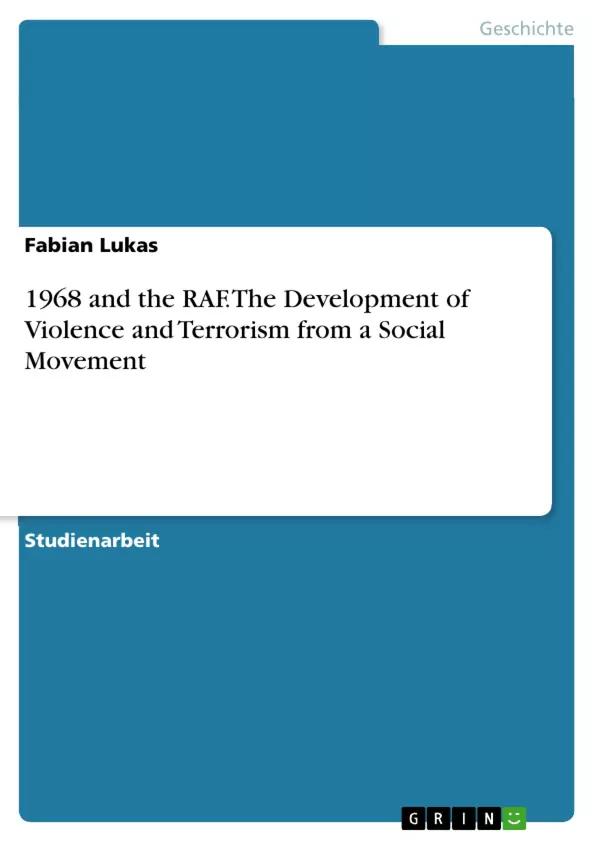Social Movements are one of the main forms of collectives that formulate a goal they want to achieve. This occurs under the use of various strategies to show their demands like collective protests and demonstrations. Social Movements are an important vehicle for the public to gain attention and formulate needs. In the society those Movements are standing next to other more institutionalized ways of protests, so they are an actor among others.
Today Social Movements represent an important part of the social landscape. They are different movements dealing with a lot of topics like abortion, human and civil rights, environmental protection, women etc. Also the Movements can have a global or a local nature. According to the development of Social Movements the researchers David A. Snow, Sarah A. Soule and Hanspeter Kriesi suggested that the society of the 21st century can be characterized as a movement society. One important step for the development and the proliferation of Social Movements are the 1960s. Even if there is no consensus among the scholars about the exact impact, the 1960s form a remarkable step in the history of Social Movements. In Germany this step was represented by the Student Movement of 1968 that, even if most of the political goals the movement wanted to achieve failed, played an important role.
Social movements are fuzzy phenomena and moving targets so it is difficult to give a definition about them. In structural terms a social movement is like a network of individuals, groups and or organizations. A network has no top and no clear center that could steer and control the whole of its activities Also the use of collective public protest is a key strategy of any social movement to pursue their goal. These strategies can also include the use of violence. This homework is going to show the connection of the Social Movement in Germany 1968, their image and their use of violence, together with the most extreme form of violence, the terrorism of the RAF.
Inhaltsverzeichnis
- Einführung...
- Ein theoretischer Ansatz zu sozialen Bewegungen...
- Soziale Bewegungen: Homogene Entitäten?...
- Taktiken und Strategien.......
- Gewalt und Terrorismus..\nTerrorismus und soziale Bewegungen...
- Die 1968er-Bewegung in Deutschland.\nNeue Linke Terrorismus……....
- Die RAF und die Bewegung...\nDie RAF und die Gewalt..\nSchlussfolgerung..\nBibliographie.
Zielsetzung und Themenschwerpunkte
Diese Arbeit untersucht die Entwicklung von Gewalt und Terrorismus innerhalb der sozialen Bewegung von 1968, insbesondere im Kontext der Roten Armee Fraktion (RAF) in Deutschland. Sie befasst sich mit den Ursachen und Motiven für den Einsatz von Gewalt durch diese Bewegung und setzt sie in den größeren Rahmen der sozialen Bewegungen des 20. Jahrhunderts.
- Die Entwicklung von sozialen Bewegungen im 20. Jahrhundert
- Die Rolle von Gewalt und Terrorismus in sozialen Bewegungen
- Die Ursachen für den Aufstieg der RAF in Deutschland
- Die Taktiken und Strategien der RAF
- Die Auswirkungen der RAF auf die deutsche Gesellschaft
Zusammenfassung der Kapitel
Die Arbeit beginnt mit einer Einführung in den theoretischen Rahmen der sozialen Bewegungen, wobei sie verschiedene Definitionen und Konzepte beleuchtet. Anschließend werden die Taktiken und Strategien von sozialen Bewegungen im Allgemeinen und die Rolle von Gewalt und Terrorismus im Besonderen behandelt.
Das nächste Kapitel konzentriert sich auf die 1968er-Bewegung in Deutschland und ihre Entwicklung. Die Arbeit untersucht den Aufstieg der Neuen Linken und die Entstehung der RAF als eine extreme Form des politischen Aktivismus. Das Kapitel beleuchtet die Ziele und Methoden der RAF sowie ihre Beziehung zur breiteren 1968er-Bewegung.
Der Fokus liegt dann auf der RAF und ihrer Verwendung von Gewalt. Die Arbeit analysiert die verschiedenen Arten von Gewaltakten, die von der RAF verübt wurden, einschließlich Banküberfälle, Entführungen und Morde. Sie untersucht auch die Auswirkungen dieser Gewaltakte auf die deutsche Gesellschaft.
Schlüsselwörter
Soziale Bewegungen, Gewalt, Terrorismus, 1968er-Bewegung, Neue Linke, Rote Armee Fraktion (RAF), Deutschland, politische Gewalt, Studentenbewegung, Protest, Revolution, Ideologie, Strategie, Taktik.
Häufig gestellte Fragen
Wie wird die 1968er-Bewegung in Bezug auf soziale Bewegungen definiert?
Die 1968er-Bewegung gilt als ein Netzwerk von Individuen und Gruppen, das durch kollektiven Protest gesellschaftliche Veränderungen anstrebte und die Entwicklung zur „Bewegungsgesellschaft“ prägte.
Welche Verbindung besteht zwischen der 1968er-Bewegung und der RAF?
Die Arbeit untersucht, wie sich aus Teilen der Studentenbewegung durch Radikalisierung extreme Formen der Gewalt und schließlich der Terrorismus der Roten Armee Fraktion (RAF) entwickelten.
Was waren die Ursachen für den Aufstieg der RAF in Deutschland?
Wichtige Faktoren waren die Ideologie der Neuen Linken, das Scheitern politischer Ziele der breiten Bewegung und die Entscheidung für den bewaffneten Kampf gegen das System.
Welche Taktiken wendete die RAF an?
Die Taktiken umfassten Banküberfälle, Entführungen und Morde, um politische Forderungen zu erzwingen und den Staat herauszufordern.
Wie beeinflusste die Gewalt der RAF die deutsche Gesellschaft?
Die Gewaltakte führten zu einer tiefen Verunsicherung, staatlichen Gegenmaßnahmen und einer langanhaltenden Debatte über politische Radikalisierung in Deutschland.
Was versteht man unter dem Begriff „Bewegungsgesellschaft“?
Dieser Begriff beschreibt moderne Gesellschaften des 21. Jahrhunderts, in denen soziale Bewegungen ein fester und einflussreicher Bestandteil der politischen Landschaft sind.
- Citation du texte
- Fabian Lukas (Auteur), 2014, 1968 and the RAF. The Development of Violence and Terrorism from a Social Movement, Munich, GRIN Verlag, https://www.grin.com/document/299450



